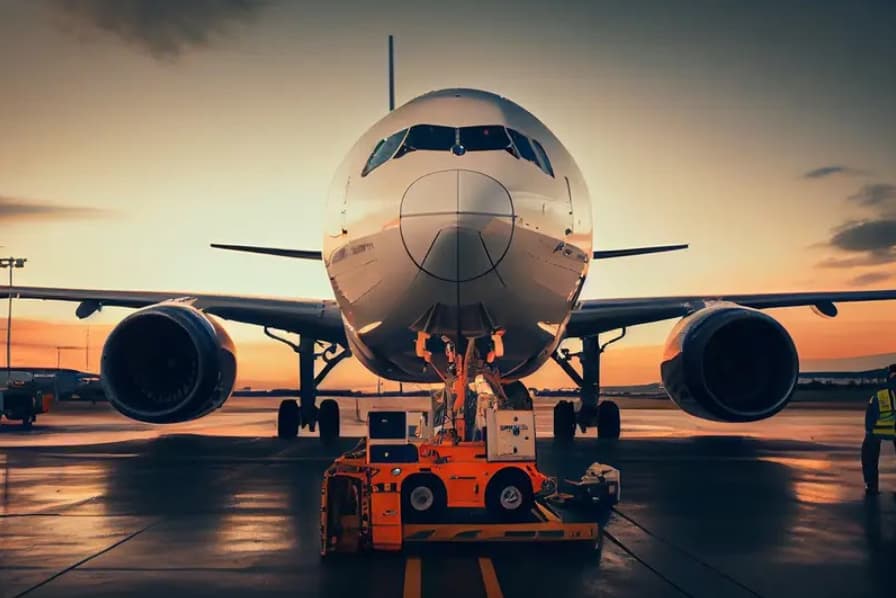Understanding Air Freight: Process, Benefits, and Why It's Important

Global commerce depends heavily on dependable transportation systems for businesses and private individuals today. Efficient transportation selection constitutes a fundamental choice. The transportation system guarantees the safe delivery of necessary materials while ensuring on-time deadlines and secure handling of valuable objects. Improved system performance and modern lifestyle needs require dependable transportation services to work effectively. Air freight presents a transport option that excels beyond all others due to its fast delivery speed, widespread availability, and flexible options.
The blog examines the method that revolutionized worldwide commerce by transporting commodities across long distances. We will explore its meaning, learn about its key advantages, and consider when it is the most suitable choice.
If you are a business owner needing assistance with international air shipping, keep this guide close. It will offer insightful information to support your decision-making.
What is Air Freight?
Air freight refers to transporting goods by aircraft with the authorities designating such shipments as air cargo. Various other transport methods fall short compared to air freight systems because they deliver exceptional reliability and speed. Multiple businesses, including manufacturers, retailers, healthcare operators, and technology firms, employ this solution to quickly deliver essential merchandise combined with high-value consignments and perishable goods to domestic and international markets.
What sets air freight apart is its ability to drastically reduce transit times. Air freight guarantees delivery in hours or days, depending on the distance and service level, whereas road or sea freight may take weeks. This makes it the go-to option for time-sensitive shipments and critical deliveries.
The Air Freight Shipment Process
Understanding air freight shipment operations aids businesses in improving their logistics planning. As with any process, air freight operations involve:
- Booking & Documentation: Document preparation and booking services indicate the initial requirements of air freight operations. Before paper transmission, businesses need to create essential shipping documentation, which includes an airway bill (AWB), commercial invoice packing list, and export/import license.
- Cargo Collection & Handling: Cargo collection begins at the origin points through authorized collectors performing the secured movement. This brings us to clear: an inspection waiting period until the aircraft loading commences.
- Air Transportation: Transportation of shipments via aircraft requires prior endorsement after standard flight paths are selected. Commercial air transport is chosen based on shipment priority and the item's size, whether scheduled flights, dedicated aircraft, or bespoke aircraft solutions.
- Customs Clearance at Destination: The destination customs clearance process involves two separate inspections at the receiving airport before authorization for final delivery is granted.
- Final Delivery: A shipment moves from Customs and Border control completion into ground transit, transporting it to its recipient's location.
Key Benefits of Air Freight
The standout characteristic of air freight compared to other shipping options is the unmatched speed and reliability it provides businesses. Air freight operations offer several key advantages to transportation processes.
- Faster Transit Times: Speedy international cargo delivery in under 48 hours is exclusive to air freight, and no other option is available. High-value products like luxury items, pharmaceuticals, and perishable goods have very strict transport timeframes.
- Global Connectivity: Businesses use air freight connections to interlink globally, which supports smooth international trading and scalability across international markets.
- Reduced Risk of Damage: Quick and efficient air transport offers superior protection against product damage compared to road and sea delivery methods.
- Optimized Inventory Management: Businesses can achieve highly efficient inventory management through rapid delivery, which enables them to maintain minimal inventory levels, thereby reducing storage costs and strengthening financial stability.

How Air Freight is Calculated?
Air freight rates are calculated using blended chargeable weight values that combine actual weights with volume measurements taken for individual cargo pieces. Volumetric weight calculation follows a standard format that Airlines use to determine their rates.
Volumetric weight (kg) = (CBM x Air Freight Density Factor)
Businesses depend on air freight CBM calculators to achieve proper pricing while carrying out automatic weight calculations. Companies determine consignment space through the CBM (Cubic Meter) measurement after airlines apply their distinct conversion factors.
Converting CBM to KG for Air Freight
The calculation of air freight weight relies on converting CBM values through multiplication with industry density factors. Transportation of air freight through weight-based billing requires businesses to transmute measurements in CBM units into kilograms. Standard industry calculations determine that one CBM equals 167 kilograms throughout most industries. The payment rate selection process depends on both shipment weight measurements and physical dimensions.
Frequently Asked Questions (FAQs)
- What goods types are best suited for air freight?
Air freight is the optimal choice to deliver valuable products alongside fast-moving and perishable shipments. The transportation services extend to quick emergency delivery alongside electronics, pharmaceuticals, medical supplies, and fashion items. - How long does air freight shipping take?
Depending on the origin and destination, air freight transit times vary, but most international shipments take one to seven days, including customs clearance and delivery. - Is air freight more expensive than other shipping methods?
Air freight expense exceeds sea freight and road transportation costs because of its fast delivery capabilities. Air freight provides inexpensive transportation solutions for urgent deliveries, premium goods, and instant delivery requirements for business reliability.
Conclusion
Air freight remains essential for international logistics because it provides businesses with a secure, fast delivery system. Air freight services promptly deliver valuable items, medical supplies, and necessary paperwork. Businesses need to understand the procedures, cost estimates, and benefits to optimize their supply chain performance while keeping up with today's fast-moving industry pace.
Partner with CargoesPi for all your air freight needs across North America, Europe, and beyond. Contact CargoesPi now.
Check out our Global airports map here for a perfect air freight.

